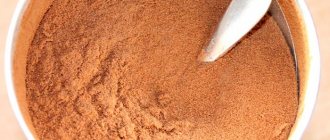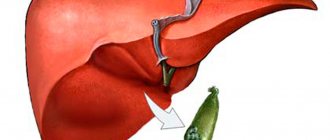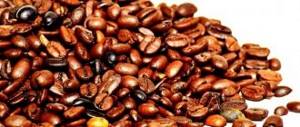Doctors either praise coffee or demonize it. Classical dietetics of the “Soviet” school did not recommend drinking it except with milk, in a highly diluted form, and only a couple of times a week.
But times have changed - more and more scientific studies are being published indicating the beneficial effects of caffeine on the human body. Most scientific publications focus on the effects of caffeine on the central nervous system, its effect on brain function, memory and mood.
But the purpose of some studies was to study the effect of caffeine on the human liver.
One study confirms that coffee has hepatoprotective properties and helps increase liver enzyme levels. And drinking this drink may be beneficial for people suffering from hepatitis B and C, non-alcoholic fatty liver disease (NAFLD), and alcohol-related damage.
Another study found that patients with cirrhosis who regularly consumed coffee had a reduced rate of disease progression and a reduced mortality rate from cirrhosis.
In this article we will discuss in detail what effect caffeine has on the human gastrointestinal tract, especially the liver, what rules should be followed when consuming it, and also in what cases coffee can cause harm instead of benefit.
Potential Harm
In some situations, coffee can be not only beneficial, but also harmful. But there are a number of nuances here. It is important to separate natural bean freshly brewed coffee and various sublimate-based drinks. Not all factories follow the recipe; some find it easier to add flavorings and colorings to a soluble concentrate than to actually cool a freshly brewed drink, dry it, grind it and package it in a convenient container.
Harm of instant coffee:
- The product may contain toxins. You should refrain from cheap varieties offered by the mass market. The information on the packaging will tell you whether the drink contains dyes (colors) and flavor and aroma enhancers;
- Does not go well with sweet and fatty foods. The simultaneous consumption of all three products leads to a sharp narrowing of the liver vessels. Problems with blood circulation do not allow toxins to be effectively eliminated, and the body becomes poisoned. Regular overload of the liver can lead to metabolic disorders, fatty hepatosis, and other problems;
- Beverage abuse. And even the healthiest product in huge quantities causes liver problems. Systemic disorders - the more we drink an invigorating drink, the less quality we eat, as our appetite disappears. More sweets, fatty foods, semi-finished products to support activity - a greater load on the liver cells. The result is an increased susceptibility to disease.
Is it possible to talk about the dangers of a natural drink for the liver? Yes, if a person drinks too much, constantly, and does not control blood pressure and blood sugar levels. An increase in blood pressure has a detrimental effect on the liver vessels, and during physical activity can cause micro-tears.
Liver cells do not have nerve endings, a person does not feel pain, even after receiving serious damage. It is important to maintain moderation in caffeine consumption, and do not forget about regular medical examinations.
As we have already found out above, coffee has many positive properties, including for the gastrointestinal tract, including the liver. And it can cause harm for the following reasons:
- abuse;
- consumption of low-quality instant drink;
- consumption of coffee for existing serious pathologies, without prior approval from a doctor.
Thus, you should give preference to a natural drink, and also observe the measure - drink no more than 2-3 cups a day. In addition, it is important to be aware of all existing diseases for which coffee may be contraindicated. If these 3 conditions are met, there is nothing to fear and you should not give up your favorite drink, especially considering its many beneficial properties.
But for even greater safety, we recommend that you follow other rules described below.
What is the harm of coffee for the liver?
Uncontrolled consumption of coffee in your diet can cause a significant impact on health not only in relation to the liver, but also other internal organs. Coffee beans contain caffestol, a component that causes dysfunction of liver cells during the distribution of cholesterol. It begins to manifest itself especially actively when using instant coffee, which contains many additives of artificial origin. To protect against such an “attack” and neutralize harmful substances, the liver has to work hard, which ultimately leads to destabilization of its work.
It is strictly forbidden to drink coffee in the following cases:
- When a patient has undergone surgery to amputate part of the liver. Excess caffeine and other components of the product can inhibit the process of regeneration of damaged tissues.
- When you have infectious hepatitis in one of the possible stages: acute or chronic.
- If you have problems with the cardiovascular system. In this case, even with a healthy liver, you can begin to suffer from tachycardia, shortness of breath, arrhythmia and other heart failures.
It is not recommended to drink coffee in the following cases:
- On empty stomach. Regardless of whether coffee is simply black or with added milk, it corrodes the stomach lining and can become one of the causes of gastritis or ulcers. Also, when drinking a drink diluted with milk on an empty stomach, so-called conglomerates are formed - insoluble substances that settle in the kidneys and bladder in the form of stones.
- Combined with alcohol. Severe intoxication, aggravated by a portion of strong coffee, puts a lot of stress on the liver and pancreas. As a result, a sharp rise in blood sugar concentration, pressure drops, and an even greater deterioration in well-being.
- Abuse of fatty and fried foods. The effect is similar to the previous description - an increase in blood sugar levels, which can ultimately trigger the development of diabetes.
Can coffee cause liver pain?
Modern science insists that the liver should not hurt if we are talking about moderate consumption of high-quality coffee. Another thing is the pancreas and bile ducts. If you drink too much, or choose cheap, low-quality options, pain and even exacerbation of chronic diseases are possible.
Pain and heaviness in the liver can occur from combinations of coffee and alcohol, or coffee and fatty foods. Scientific sources are conflicting on this issue. Some say that drinking caffeine with alcohol helps protect liver cells from alcohol damage, others say that such a combination poisons the body and should never be practiced.
There is evidence that the liver can malfunction from a constant breakfast in the style of “coffee and something sweet and fatty at the same time.” The American doctor D. Kessler writes about this phenomenon, as well as about addiction to caffeine and sugar. He believes that black coffee is completely harmless, but you should not drink something like Frappuccino, RAF coffee or cocktails with sweet cream, cookies and other ingredients. David reminds us that fatty liver disease is a constant companion for coffee cocktail lovers. And its presence prevents the liver from participating normally in lipid metabolism, and contributes to general obesity.
Thus, the root of the problem may not be in the drink at all , but in a general imbalance in the diet, the presence of a large amount of unhealthy fats and fried foods in the diet.
Many people simply consume excess calories, gain weight, and have nowhere else to store fat except in the liver.
The benefits of coffee for the liver
The liver is the main laboratory of the body, which carries out the important function of filtering and cleansing it of toxins and harmful substances. Drinking coffee in reasonable dosages can have a positive effect in the fight against a number of diseases. In particular:
- Minimize the risk of developing liver cirrhosis, as it promotes the regeneration of hepatocytes.
- Prevent the formation of liver fibrosis, since regular feeding of the body with caffeine helps to slow down the process of scar formation in the area of parenchymal tissue.
- Correct and stabilize lipid metabolism. It has been proven that a person’s life expectancy is proportionally dependent on the degree of obesity, that is, the more overweight, the more people get sick and age faster.
- Help in restoring strength after hepatitis C. Caffeine is a natural blocker of receptors responsible for the production of the intracellular enzyme alanine aminotransferase.
This video provides detailed information about the benefits of coffee for the liver.
Is it possible to drink if you are sick?
Classical dietetics, based on the textbook by M.I. Pevzner from the 30s of the last century denies us the pleasure. According to Soviet medicine, the only coffee that is suitable for a diseased liver is a barely cloudy drink with a lot of milk.
Modern medicine is not so categorical. In Europe and America, the drink is allowed, introducing only additional rules for use for various diseases:
- Enlarged liver. Complete exclusion of instant coffee, switching to natural freshly brewed analogues, giving up alcohol, sweets and fried foods are the general recommendations of nutritionists.
- Fatty hepatosis. Usually closely related to pre-existing lipid metabolism disorders and dietary imbalances. If the diet is dominated by fats, simple carbohydrates, and there is not enough protein, coffee can do little to spoil or correct anything. All doctors agree that if you have fatty hepatosis, you can drink 2 cups of black coffee a day, or dilute the drink with low-fat milk, or its plant analogue. You should not add a bun, chocolate or other sweets.
- Hepatitis. For hepatitis of any form, it is advised to follow a gentle diet and include low-fat foods, porridge from natural cereals, and lean poultry and fish in the diet, and drink only weak and natural coffee.
- Cirrhosis. The most severe disease, which affects metabolism very significantly, requires caffeine limitation. You can drink natural Americano no more than 1-2 times a week. If the disease is not severe, you can consult your doctor about drinking coffee more often.
How does coffee affect the liver?
Coffee is a kind of drink that can tone the body and give additional energy.
Coffee culture has a huge number of ways to prepare this drink, and stores offer a wide range of different varieties and manufacturers. The effect of coffee on the liver and the body as a whole is still controversial. Some doctors prescribe it to have medicinal properties, while others say it is harmful if consumed regularly.
This factor largely depends on the quality of the coffee beans, the method of their preparation, as well as on the individual characteristics of the person.
The benefits of coffee for the liver and the whole body
High-quality natural coffee contains a huge number of components that have a beneficial effect on the body. This does not apply to soluble varieties, which lose most of the beneficial substances during their production. The table shows the chemical composition of the coffee drink and the properties that each of its components has.
| Substance | Beneficial features |
| Aromatic compounds | They have a similar effect to aromatherapy - they calm the nervous system and activate metabolic processes. |
| Caffeine, trigonelin | These substances belong to the group of alkaloids that affect the nervous system and psychological state. They act on the central nervous system, relieving the feeling of drowsiness. In addition, they stimulate blood circulation, as a result of which the liver receives all the necessary substances in sufficient quantities. |
| Organic acids | These natural acids affect the functioning of the gastrointestinal tract. Under their influence, the metabolic processes of proteins, fats and carbohydrates are normalized, which relieves additional stress on the liver. |
| Vitamins | B vitamins are involved in all metabolic processes. They restore the structure of the walls of blood vessels, speed up metabolism and energy. |
| Nitrogenous components | These components are necessary for the construction of new proteins. The function is useful for the liver, since normally it should be constantly updated. |
| Minerals | Minerals are necessary for proper carbohydrate metabolism. This process occurs partly in the liver, where glucose and its derivatives are converted into glycogen. |
| Tannin | Tannins protect the liver from the effects of free radicals. When they enter the body, pathological reactions of lipid peroxidation are blocked. As a result, the liver can be protected from premature aging and apoptosis (programmed death) of hepatocytes. |
All the benefits of coffee are reflected in the functioning of the liver.
With its regular use, vascular tone is restored, which is why the cells are supplied with a large amount of vitamins, minerals, nutrients and oxygen.
In addition, coffee affects the production of gastric juice and bile, which makes food digested better. This drink can provoke a number of positive changes.
Coffee has been proven to cleanse the liver and gallbladder of toxins. The liver is the body's main filter, which retains poisons, medications and toxic substances. When metabolism accelerates, they are excreted faster.
Another property is the prevention of the formation of scar connective tissue and the development of cirrhosis.
Coffee beans contain components that are involved in lipid metabolism. Thanks to this, the risk of fatty liver disease (fatty liver degeneration) is reduced.
The liver begins to recover faster from coffee. This is useful not only during the period of rehabilitation after various diseases, but also in everyday life.
A natural drink in moderate quantities will not harm a healthy liver, but, on the contrary, will support its function.
The benefits of coffee for the liver and other organs are based on its chemical composition. If you choose a high-quality bean drink rather than its instant counterpart, improvements can be noticed after a long time.
For people who suffer from diseases of the cardiovascular system, a coffee drink with low caffeine content has been developed.
It tastes a little different, but has no less benefits than regular coffee.
Effects of coffee on the pancreas
Coffee stimulates digestive processes, in which the pancreas is actively involved. The effect of caffeine depends on its correct use. In this regard, the effect of the drink may differ:
- Drinking a cup of coffee on an empty stomach activates the digestion process. It irritates the mucous membranes, as a result of which they begin to be digested by the stomach itself.
- Regular consumption of large doses of caffeine depletes the cells of the pancreas, which threatens pancreatitis.
- If you drink coffee some time after eating, the negative effect will not be pronounced.
- A number of studies have shown that caffeine stimulates the release of adrenaline, a hormone that speeds up the production of insulin. According to other data, the drink can prevent the development of diabetes.
One of the most harmful components of coffee is coffeestol. It can promote the deposition of cholesterol plaques. However, you can protect yourself from its influence - most modern coffee makers are equipped with special filters that reduce its concentration.
People who drink instant powder instead of natural coffee, as well as low-quality varieties, are also at risk. The addition of flavorings (chocolate, caramel, nut and others extracts) is also unacceptable.
They accumulate in the body, and the liver quickly wears out in an attempt to neutralize and eliminate them.
Cheap coffee varieties, which consist not only of beans, but also substances to extend their shelf life and flavors, are also harmful.
The low-caffeine drink will be an alternative to the usual strong black coffee.
The effect of coffee on liver diseases
The research results are enough to find out how coffee affects the liver of a healthy person. At the cellular level, it helps cleanse the body of toxins, which significantly reduces the load on the liver tissue. It prevents the formation of chemical bonds between aminotransferases (enzymes) and receptors, and this process helps prevent inflammatory diseases.
The question is whether it is possible to drink coffee if the liver is already suffering from acute or chronic processes.
Doctors' recommendations on this matter are as follows:
- in case of cirrhosis, a coffee drink with low caffeine content prevents the formation of scar connective tissue;
- in patients with anemia, iron deposition in hepatocytes slows down, reducing the likelihood of hemosiderosis;
- Coffee can prevent another relapse of hepatitis C.
If your liver hurts after drinking coffee, you should take additional tests. Perhaps, during its entry into the body, metabolic processes are activated, during which the liver removes toxins.
You may also feel worse if you drink it on an empty stomach. In addition, if there are stones in the gallbladder, the flow of bile will be impaired, and coffee will stimulate the contraction of the bladder.
The pain is also localized in the right hypochondrium.
The question of whether coffee is harmful to the liver remains open. On the one hand, its components have a beneficial effect on the body as a whole and on the liver in particular.
It helps remove toxins, stimulates the processes of lipid, carbohydrate, protein and energy metabolism. On the other hand, only a high-quality drink can produce such an effect.
Soluble powder is more likely to cause harm due to the high content of dyes, flavors and preservatives, and during its production all beneficial substances will lose their properties.
Source: https://albur.ru/prochee/kak-kofe-vliyaet-pechen
Special versions of the drink
For those who want to improve their cleansing properties and get more benefits, there are ethnic coffees with additives.
For example, in Chinese folk medicine, coffee is mixed with an extract of the Cordyceps tree fungus.
This product is often marketed as a weight loss drink, hepatoprotector, and immune booster. Yes, these properties are inherent in the mixture, but it cannot replace medications prescribed by a doctor. Coffee with cordyceps should be considered an interesting ethnic drink with beneficial properties.











